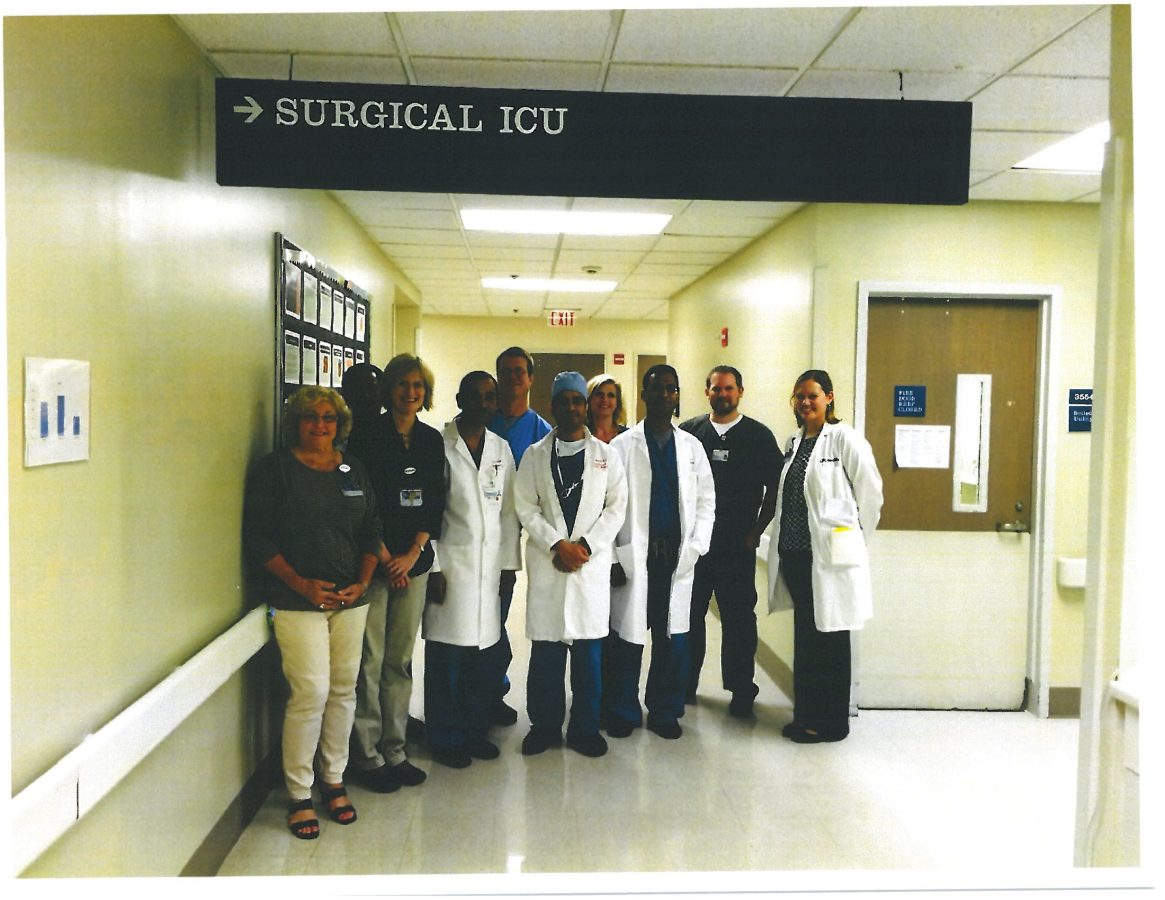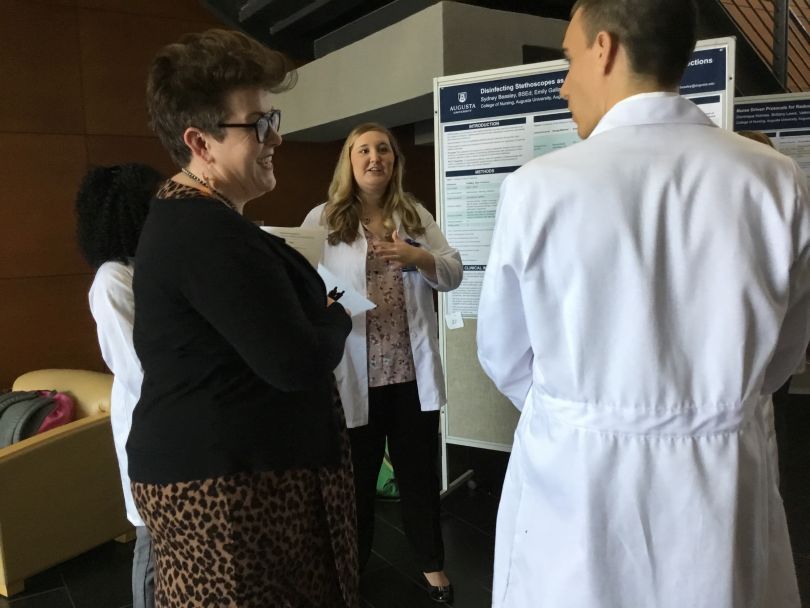The Georgia Hospital Association recognizes excellence in improving quality and patient safety through their annual PHA Quality and Patient Safety Award program. Georgia hospitals are recognized at their annual Patient Safety Summit for their achievements in implementing evidence-based processes and best practices that reduce the risk of adverse outcomes and improving patient safety and quality. The GHA Patient Safety Summit was held January 7-8, 2015. Georgia Regents Medical Center was recognized for the 3rd year in a row for the work a multidisciplinary team has accomplished related to managing serum blood glucose in the cardiac surgery patient population.
The Cardiothoracic serum blood glucose (CT SGB) team was developed in response to the Institutes of Healthcare Improvement evidence-based recommendations regarding the management of serum blood glucose to 180 or less in critically ill patients, such as the cardiac surgery patient. In 2013, the quality performance data indicated our results for managing the serum blood glucose in cardiac surgery patients was declining in the Surgical Care Improvement Project (SCIP) core measure. At that time, there was not a standardized approach for managing the serum blood glucose in the cardiac surgery patient population.
The CT SBG team, made up of CT Surgeons, Anesthesiologists, Endocrinologists, Intensive Care Physicians, Pharmacists, ICU/CCU Nurses, Nursing Leadership, Clinical Educators, Quality Management, and Outcomes Management, was created. The team specified the type of data that would be meaningful to collect and the QM Coordinator started tracking this additional information during the daily concurrent reviews that were occurring for all cardiac surgery patients.
To improve the management of hyperglycemia in the cardiac surgery patients, a protocol was developed and implemented in October 2013 to provide a more standardized approach to managing the serum blood glucose control in these critically ill patients in an effort to prevent complications and improve patient outcomes.
This new protocol incorporated the OR to ICU handoff communication to include the diabetes history and intraoperative glucose management information, more frequent SGB monitoring, implementation of an insulin infusion protocol, providing on-going education for physicians and nursing staff, and performing concurrent reviews to identify opportunities for improvement.
The concurrent quality data for all cardiac surgery patients and the SCIP Inf-4 core measure data that were selected by the Centers for Medicare & Medicaid Services (CMS) indicated that the intraoperative and postoperative management of the serum blood glucose in the cardiac surgery patients was progressively improving with this new hyperglycemia management protocol. We have consistently met the goal for maintaining serum blood glucose levels for the past seven months.
Nancy Kotti and Rosemary Pilcher attended the GHA Patient Safety Summit, along with Dr. Kevin Dellsperger and Laura Brower to accept the award on behalf of the organization this week.
 Augusta University
Augusta University




